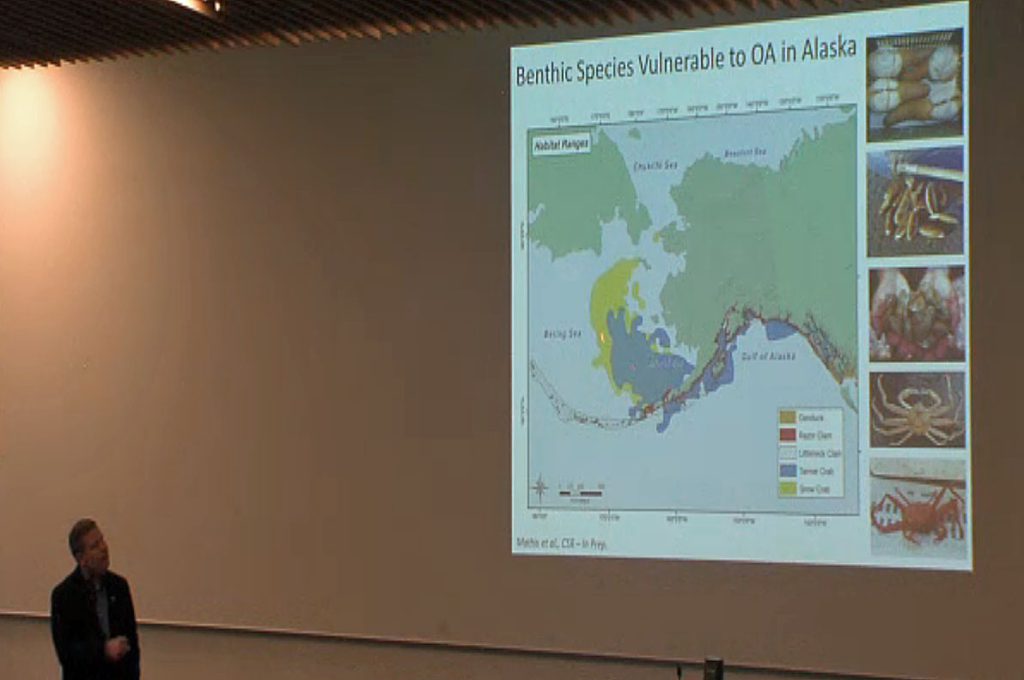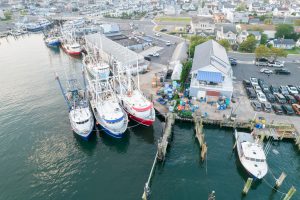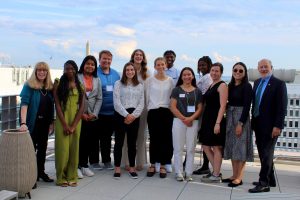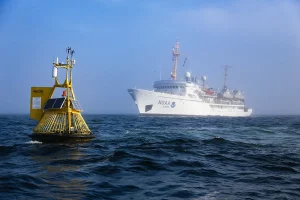NOAA Ocean Acidification Program


NOAA, academic and international scientific experts are gathering July 24 -26, to further develop the Global Ocean Acidification Network (GOA-ON). The purpose of this network is to facilitate international coordination in order to compare and integrate observational data collection specific to ocean acidification across the globe. This group is designing a global standard for measuring and identifying ocean acidification and is important for establishing a global understanding of ocean acidification including its impacts on ocean life as well as humans. This network will ensure data quality and comparability, facilitated by a structured system based on common standards. It will also assist policy-making through research products and model-based projections of future potential impacts of ocean acidification.
The workshop kicked off with a joint session with the UK Ocean Acidification Research Programme to lay out the scientific needs and resources available to meet the vision for GOA-ON.The foundations for this network were established at the first GOA-ON workshop held in June 2012 at the University of Washington, Seattle. This year’s workshop has widened participation, with 87 scientists from 29 countries working under the premise that “management requires measurement.” In order to understand biogeochemical, ecological and societal importance of ocean acidification, field data on relevant chemical, biological and ecological variables at local, regional and global levels is required.
More information on the workshop is available here.
The wide variety of participants in this workshop was made possible by generous sponsors below:


The UK Natural Environment Research Council (NERC), the Department for Environment, Food and Rural Affairs (Defra), and the Department of Energy and Climate Change (DECC) through their co-funded UK Ocean Acidification research programme
· The UK Department for Business, Innovation and Skills (BIS) and the Foreign & Commonwealth Office (FCO), through their co-funded Science & Innovation Network
· The US National Ocean and Atmospheric Administration, through the NOAA OA Program
· The International Atomic Energy Agency (IAEA) through its Ocean Acidification International Coordination Centre (OA-ICC)
· The International Ocean Carbon Coordination Project (IOCCP)
· The Global Ocean Observing System (GOOS) and the Intergovernmental Oceanographic Commission (IOC) of UNESCO
The support provided by the University of Washington, the X PRIZE Foundation and Plymouth Marine Laboratory is also greatly appreciated, with additional assistance by James Orr (CEA/CNRS/UVSQ) and Kirsten Isensee (IOC)


July 24th, 2013– NOAA, academic and international scientific experts are gathering July 24 -26, to further develop the Global Ocean Acidification Network (GOA-ON). The purpose of this network is to facilitate international coordination in order to compare and integrate observational data collection specific to ocean acidification across the globe. This group is designing a global standard for measuring and identifying ocean acidification and is important for establishing a global understanding of ocean acidification including its impacts on ocean life as well as humans. This network will ensure data quality and comparability, facilitated by a structured system based on common standards. It will also assist policy-making through research products and model-based projections of future potential impacts of ocean acidification.
The workshop kicked off with a joint session with the UK Ocean Acidification Research Programme to lay out the scientific needs and resources available to meet the vision for GOA-ON.The foundations for this network were established at the first GOA-ON workshop held in June 2012 at the University of Washington, Seattle. This year’s workshop has widened participation, with 87 scientists from 29 countries working under the premise that “management requires measurement.” In order to understand biogeochemical, ecological and societal importance of ocean acidification, field data on relevant chemical, biological and ecological variables at local, regional and global levels is required.
More information on the workshop is available here.
The wide variety of participants in this workshop was made possible by generous sponsors below:


· The UK Natural Environment Research Council (NERC), the Department for Environment, Food and Rural Affairs (Defra), and the Department of Energy and Climate Change (DECC) through their co-funded UK Ocean Acidification research programme
· The UK Department for Business, Innovation and Skills (BIS) and the Foreign & Commonwealth Office (FCO), through their co-funded Science & Innovation Network
· The US National Ocean and Atmospheric Administration, through the NOAA OA Program
· The International Atomic Energy Agency (IAEA) through its Ocean Acidification International Coordination Centre (OA-ICC)
· The International Ocean Carbon Coordination Project (IOCCP)
· The Global Ocean Observing System (GOOS) and the Intergovernmental Oceanographic Commission (IOC) of UNESCO
The support provided by the University of Washington, the X PRIZE Foundation and Plymouth Marine Laboratory is also greatly appreciated, with additional assistance by James Orr (CEA/CNRS/UVSQ) and Kirsten Isensee (IOC)






